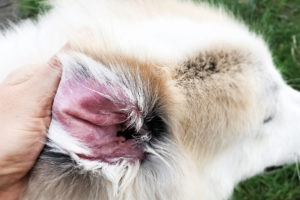Your pets are your companions. They are there for you through thick and thin, and you care about them at least as much as you care about yourself.
Sometimes, however, our pets can have dental issues. Even if the only symptom you notice is bad breath, it could indicate a more serious problem, such as periodontal disease or other dental issues. Left untreated, this could lead to many other health issues for your pet.
You want to prevent any dental shortcomings for your furry companions. You can do so by brushing their teeth daily and occasionally taking them to professional dental cleanings. Here are four tips to keep their pearly whites healthy.
1. Provide chews that clean your pet’s teeth
Your pets love treats. They will do almost anything you ask to receive them. Of course, you always want to reward your pet for good behavior, which is perfectly natural. However, you want to make sure that you are only giving your pets treats that are good for their teeth. This will lead to far fewer problems later on down the road.
Only give your pets chews that are good for their teeth. Your pets will love you for giving them chews. These treats will also clean their teeth. It’s a win-win for everyone.
Watch out for harmful treats
Make sure that you do not give chews that will damage their teeth. For example, cow bones or hooves will do more harm than good. They could damage your dogs’ teeth. They might even break your dog’s teeth.
2. Brush your pet’s teeth
Brushing your pet’s teeth might sound like putting them in stuffy sweaters when you take them to the holiday party. This is not at all the case. In fact, regular dental care is essential for your pet’s oral hygiene. You should brush their teeth every day of the week. They will thank you for it (even if they don’t like it at first).

This might sound like it’s a bit much, but, believe it or not, a very effective way to care for your pet’s teeth is to brush them yourself. This will ensure that your furry friends maintain healthy oral hygiene for many years to come. Try to brush your pet’s teeth once per day. This might not happen if they’re being temperamental and uncooperative though. In that case, aim for brushing your pets’ teeth three to four times per week.
Bad breath is a red flag
If your pets have bad breath, you should not ignore this issue. It could be a sign that your pet is suffering from serious health issues. They are most likely suffering from periodontal disease, which affects 90% of dogs and cats after they turn three. This terrible disease could potentially lead to them losing their teeth. It could also damage their heart and kidneys.
You can use a small human toothbrush that fits into your pet’s mouth to brush their teeth. You can also use toothbrushes that have been specifically designed for pets. Fingertip style toothbrushes make it easier to brush hard-to-reach spots in your pet’s mouth if you would prefer that option.
If you are in a jam, using some dental wipes will get rid of some bacteria and food. Any pet-formulated toothpaste will be wonderful for cleaning your pet’s teeth. They come in many fun flavors, such as chicken or fish, which your pets will sincerely appreciate.
Try giving your pets healthy treats if they are behaving well and gradually introducing teeth-brushing into their routine. Do not use human toothpaste to brush your pet’s teeth. It contains harmful ingredients that could severely affect your pet’s health. You do not have to worry about cleaning the sides of the teeth that face inside. Dogs and cats can do this with their tongues.
3. Have professional dental cleanings performed regularly
Although it is extremely beneficial for your pets if you brush their teeth daily, you will still need to take them to professional dental cleanings occasionally. Only a professional can remove the plaque from your pet’s teeth and remove the bacteria from underneath their gums. This will ensure that they do not suffer from periodontal disease.
Make sure your pet gets anesthesia for deep cleanings
It is important to make sure that your pets are under anesthesia during these treatments. The risk of anesthesia for your pet is lower than the risk of improperly cleaned teeth. It might be tempting to allow your pet’s teeth to be cleaned without anesthesia. This is not a good idea. If someone performs dental procedures on a pet who is not on anesthesia, the plaque below the gum line and between the teeth cannot be removed. These are very likely to cause periodontal disease in the future.
4. Always know that you have the right to ask for a second opinion
If you do not feel comfortable with a certain recommendation for your pet, always feel free to ask for a second opinion. This is part of being a responsible pet owner. If you do not agree with one veterinarian about a certain course of action, ask another one in town. When it comes to your pets, you are the pet owner and, therefore, should only agree to treat your pets in ways that you feel comfortable with.
If you take care of your pet’s teeth, they will be forever grateful for a healthy smile. It will be more affordable in the long run because you will not have to worry about any major dental diseases down the road. Your pet’s breath will not stink and you will get to spend some quality time with your furry companions each and every day.





